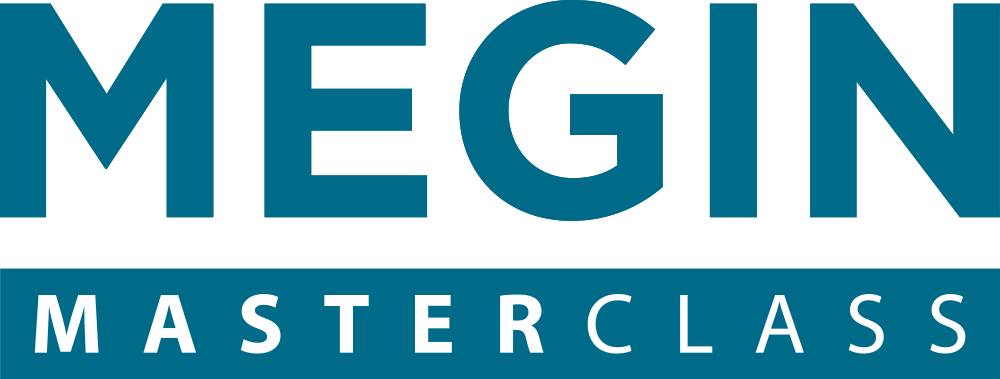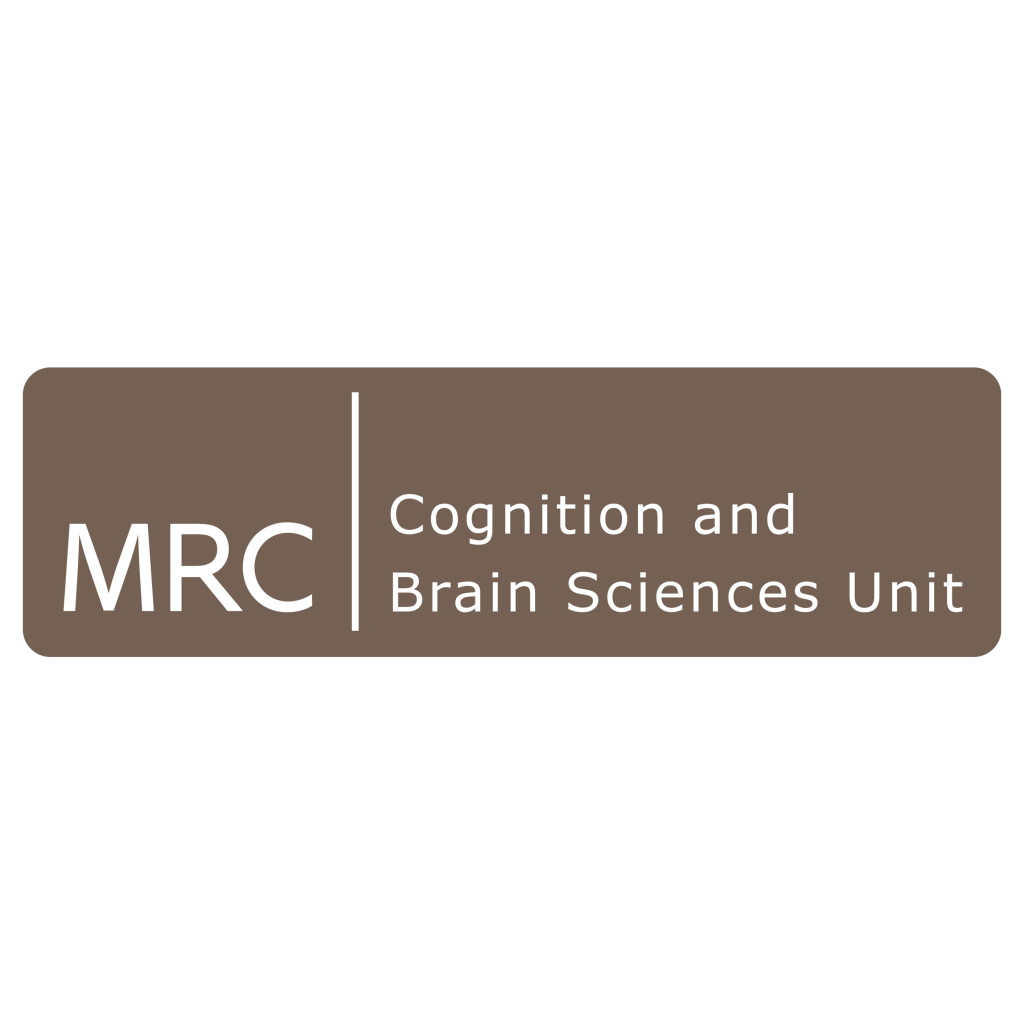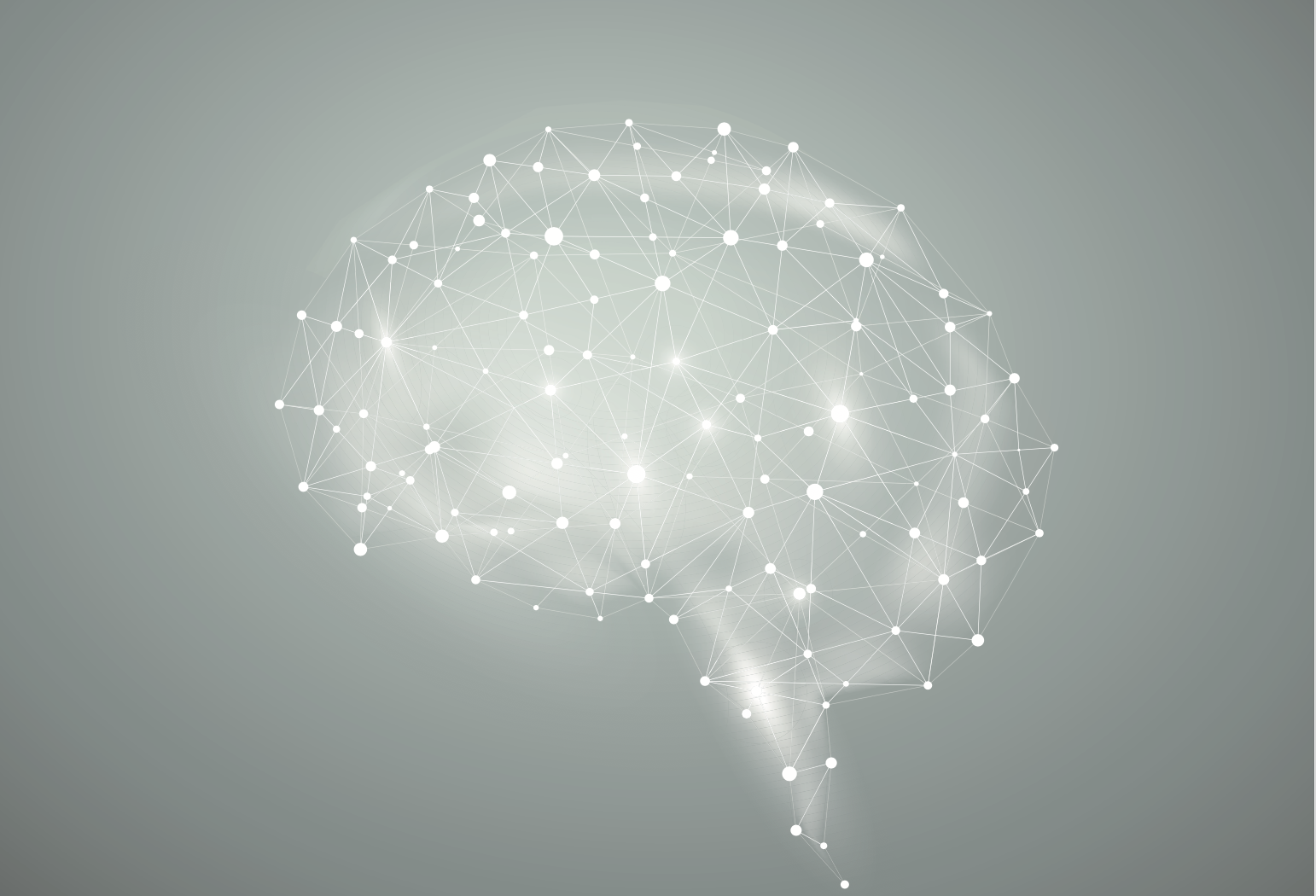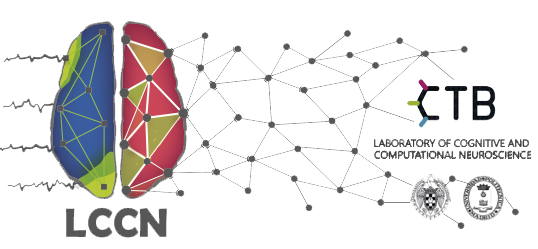
We are excited to launch a brand new webinar initiative, the MEGIN Masterclass, featuring an array of Key Opinion and Thought Leaders in the field. Each webinar will focus on a different topic, offering an opportunity to learn in more detail about the latest research and clinical cases. This will be a great forum to learn from some of the best minds in MEG, with time for questions, to connect with specialists and the wider, global community.
Watch Prior Masterclasses On-Demand
May 22nd, 3pm BST | 4pm CEST | 5pm EEST | 10am EDT
Presented by Willem de Haan
The Amsterdam EEGlab: 15+ years of pharma EEG and MEG research in dementia
This MEGIN Masterclass is presented by guest speaker Willem de Haan discussing “Neurophysiological techniques such as MEG and EEG are valuable in dementia research in various ways. We have been employing them as part of our standard diagnostic procedure in a tertiary memory clinical over the past two decades. With our EEGlab we have provided EEG (and some MEG) analysis and support for multicenter clinical phase 2 trials. In my presentation I would like to talk about our experience in this field, and discuss challenges and lessons learned. In addition, I aim to give an overview of our more fundamental MEG research in dementia, where we focus on advanced analysis of source-space resting-state data with functional connectivity and graph theoretical methods.”
*The MEGIN Masterclasses content and speakers selected are only for information purposes and MEGIN does not endorse any applications or treatments mentioned.
April 2024
Presented by MEGIN and Krish Singh, PhD at Campus Biotech, Geneva
MEG in Pharmaco Symposium 2024, Geneva
We were delighted to host the MEG in Pharmaco Symposium with Professor Krish Singh, PhD (CUBRIC) at Campus Biotech, Geneva. A series of talks showcasing how MEG can be used in drug discovery and evaluation work & could support in drug development trials.*
*MEGIN does not endorse any applications or treatments mentioned at this event. TRIUX neo™ is intended for use as a magnetoencephalographic (MEG) device that non-invasively detects and displays biomagnetic signals produced by electrically active nerve tissue in the brain. When interpreted by a trained clinician, the data enhances the diagnostic capability by providing useful information about the location relative to the brain anatomy of active nerve tissue responsible for critical brain functions. All other applications are investigational
April 8, 2024. 10am EDT | 3pm BST
Presented by Anto I. Bagić, MD, PhD, FAES, FACNS, Jeffrey R. Tenney, MD, PhD, FACNS, and Andrew J. Zillgitt, DO, FAES, FACNS
ACMEGS- The 10 Common Evidence-Supported Indications for MEG in Epilepsy Surgery*
This Masterclass will be a presentation of the article, [*Bagić AI, Funke ME, Kirsch HE, Tenney JR, Zillgitt AJ, Burgess RC. The 10 Common Evidence-Supported Indications for MEG in Epilepsy Surgery: An Illustrated Compendium. J Clin Neurophysiol. 2020 Nov;37(6):483-497.] supplemented with additional cases and literature review.
This webinar on The 10 Common Evidence-Supported Indications for MEG in Epilepsy Surgery* will be presented by Anto I. Bagić, MD, PhD, FAES, FACNS, Jeffrey R. Tenney, MD, PhD, FACNS, and Andrew J. Zillgitt, DO, FAES, FACNS.
Link to article: https://pubmed.ncbi.nlm.nih.gov/33165222/
March 19, 2024. 2pm GMT | 3pm CET | 4pm EET | 9am EST | 5pm SAST
Presented by Prof. Dr. rer. nat. Carsten H. Wolters
Individualized EEG/MEG targeted and optimized multi-channel transcranial electric stimulation in focal epilepsy
This Masterclass is presented by Prof. Dr. rer. nat. Carsten H. Wolters, Vice-director of the Institute for Biomagnetism and Biosignalanalysis (IBB) and Professor at the Medical Faculty of the University of Münster, Germany. The webinar will “address the efficacy of targeted (by combined MEG/EEG source analysis) and optimized multi-channel transcranial direct current stimulation (mc-tDCS) as therapy for focal epilepsy in a double blind sham-controlled study. Targeted and optimized mc-tDCS is applied in pharmaco-resistant focal epilepsy patients. For mc-tDCS optimization we use our recently developed algorithm – Distributed Constrained Maximum Intensity (D-CMI) (Khan et al., 2022) – on a target region which is determined by mean of combined MEG/EEG source analysis of averaged interictal epileptiform discharges (IEDs) using realistic and skull-conductivity calibrated finite-element head modeling (Neugebauer et al., 2022).
D-CMI was shown to be superior to standard bipolar tDCS in a somatosensory group study (Khan et al., 2023). A total amplitude of 4 mA is applied twice for 20 minutes, with a pause of 20 minutes in between, for five consecutive days. An Acti-Sham montage is applied with the same regimen as treatment. We use a washout of 5 weeks between the two stimulation weeks. We investigate the effect of individually targeted and optimized mc-tDCS on IED frequency as well as seizure frequency and severity.”
February 29, 2024 1pm GMT | 3pm EET | 8am EST | 4pm SAST
Presented by Dr. Vahe Poghosyan
Magnetoencephalography (MEG) in clinical practice
This MEGIN Masterclass is presented by Dr Vahe Poghosyan and will discuss, “Magnetoencephalography (MEG) is a non-invasive neurophysiological technique that measures magnetic fields (magnetic flux density) produced by neuronal ionic currents. It has wide ranging research applications in the fields of neuroscience and medicine. In clinical practice, MEG is used to localize epileptic brain foci and map functionally eloquent cortex. It is now well-established that incorporation of MEG in selection and presurgical evaluation of patients with drug-resistant epilepsy significantly increases the number of surgical candidates and improves surgical outcomes. Nonetheless, clinical MEG is still underutilized and has not been included in the standard of care in a large majority of medical centers worldwide. Scarcity of clinical MEG centers, and misunderstanding and misconceptions about MEG contribute to its pervasive underutilization in clinical practice.”
In this presentation, Dr Poghosyan will:
– First briefly introduce MEG,
– Describe the organization and clinical MEG workup employed at KFMC (including procedure and methodology), where over 200 clinical MEG studies are performed every year,
– Finally, present KFMC’s latest findings highlighting the real clinical value and utility of MEG in epilepsy surgery.
December 14, 2023
Presented by Alex Wiesman, PhD
Multimodal MEG Fusion to Study Neurodegenerative Disorders
This Masterclass is presented by Alex Wiesman, postdoctoral fellow at the Montreal Neurological Institute. The webinar will discuss, Neurodegenerative disorders affect neurophysiological signalling, with implications for cognitive and motor abilities. While previous MEG research in patients with Alzheimer’s and Parkinson’s disease has suggested robust pathophysiological markers of disease status, the proteinopathic and neurochemical changes that shape these alterations in brain activity are not well understood. In this Masterclass, I will discuss our recent research linking MEG measures of cortical neurophysiology with PET- and MRI-derived measures of proteinopathy, neurotransmitter systems, and deep-brain nucleus integrity to understand the neurochemical bases of cortical pathophysiology in neurodegenerative disorders of aging. This work suggests that MEG represents a sensitive and repeatable tool for tracking clinically- and pathologically-relevant brain dynamics in patients with Alzheimer’s and Parkinson’s disease.
Alex Wiesman is a CIHR Banting and NIH F32 postdoctoral fellow at the Montreal Neurological Institute, where he uses multimodal neuroimaging to study the proteinopathic and neurochemical bases of brain activity changes in patients with neurodegenerative disorders. His recent research has demonstrated a spatially-resolved shift of cortical rhythms towards slower patterns of signaling, which tracks the accumulation of proteinopathy and hallmark clinical outcomes in Alzheimer’s and Parkinson’s disease. Alex has published more than 70 peer-reviewed papers in leading journals using MEG.
October 2023
ASFNR Lunch and Learn sponsored by MEGIN
“MEG – moving from nice to must have” – ASFNR 2023
This MEGIN Sponsored Lunch and Learn session took place at the 16th Annual American Society of Functional Neuroradiology (ASFNR) October 2023. Titled: ‘MEG – moving from nice to must have’, this session is made up of 5 talks with speakers Drs. Teppei Matsubara, Natascha Cardosa da Fonseca, Noam Peled, Elizabeth Davenport and Tim Roberts.
Signal-to-nose ratio of cerebellar cortex from epilepsy populations in MEG and EEGSpeaker: Teppei Matsubara, PhD, MD. Research Fellow in Radiology, Harvard Medical School Advanced Techniques for Magnetic Source Imaging of Epilepsy Data Speaker: Natascha Cardosa da Fonseca, PhD. Postdoctoral Researcher, UT Southwestern Medical Center
Identification of critical nodes in the epileptogenic network as surgical targets using magnetoencephalographySpeaker: Noam Peled, PhD. Instructor in Radiology at Harvard Medical School and Massachusetts General Hospital
Emerging Translational Indications in MEG: Concussion and Dementia Speaker: Elizabeth Davenport, PhD. Assistant Professor of Radiology, Technical Director for MEG Center of Excellence at UT Southwestern Medical Center
MEG in autism. The pursuit of stratification bio markers. Converging support from multimodal imaging Speaker: Tim Roberts, PhD. Vice-chair of Research for the Department of Radiology and the Oberkircher Family Endowed Chair in Pediatric Radiology at Children’s Hospital of Philadelphia
October 18, 2023 3:00PM EEST (1:00PM BST | 8:00AM EDT)
Presented by Andrew Quinn, Assistant Professor at the University of Birmingham
The Effect of Ageing on Neuro-Magnetic Power Spectra: A Big-Data Perspective with GLM-Spectrum
This masterclass is presented by Andrew Quinn, Assistant Professor at the University of Birmingham, and will discuss, “An increasing number of large open-access MEG datasets are becoming available and are supporting the literature towards a consensus on how the MEG signal changes with age. Our statisicial and analysis methods must continue to develop to make the most of this emerging opportunity. This webinar introduces the GLM-Spectrum, a flexible analysis framework for multilevel and multivariate regression modelling of power spectrum effects. This naturally combines the flexibility of modern regression modelling and permutation-statistics with established frequency spectrum estimation.
Using the GLM-Spectrum, we estimate the effect of ageing across several large datasets whilst controlling for a range of potentially interfering covariates at the first- and group-level. The results show that the MEG power spectrum is consistently different in older compared to younger adults with differential effects in low frequencies, alpha and beta. These effects are robust across sensor and source space, magnetometers and gradiometers, and different MEG manufacturers. Covariates and confounds such as eye-blinks, head size, head position and heart rate do change the power spectrum but do not obscure the age effect at the group level. Yet, these confounding variables do remain critical for modelling the spectra of individual subjects’ recordings. Finally, we show that the covariate structure of large datasets can vary both due to systematic differences (eg acquisition set-up) or by chance due to sampling. As such, robust methods for multivariate modelling are a critical step towards consensus about how ageing changes the MEG signal.”
September 28, 2023 10:00AM CEST (9:00AM BST)
Presented by Dr. Stefan Rampp
Novel Markers of the Epileptic Network in MEG
This MEGIN Masterclass webinar presented by Dr Stefan Rampp, will discuss, “In recent years, a range of novel MEG markers have been identified, which may be applied for focus localization for epilepsy surgery. Ranging from oscillatory activity in slow and fast frequency ranges to network measures, they go beyond the conventional interictal epileptic discharges and ictal rhythms which are the basis of current MEG focus localization. Correspondingly, these markers may offer alternatives especially in patients with seemingly normal MEG data. The Masterclass will provide an overview of current evidence and research and illustrate their potential use in case examples.”
PD Dr. med. Stefan Rampp studied medicine at the University Erlangen-Nuremberg, Germany, where he graduated in 2004. He completed his doctoral thesis in 2006. From 2004 to 2014, he worked at the Epilepsy Center, Department of Neurology and at the Department of Neurosurgery, University Hospital Erlangen, Germany since 2015. In 2006, he also joined the Department of Neurosurgery, University Hospital Halle (Saale), Germany. In May 2016, he completed his habilitation thesis in experimental neurosurgery. In June 2023, he accepted a position at the Department of Neuroradiology, University Hospital Erlangen, as part of the DFG-funded Collaborative Research Center (CRC) “Exploring Brain Mechanics”. He is currently the chair of the MEG lab of the University Hospital Erlangen, Germany.
His research includes diverse topics, such as MEG, surface and invasive EEG, as well as MRI analysis and postprocessing for epileptic focus localization, functional mapping and neurocognitive research. Further areas of interest are intraoperative monitoring, biosignal analysis and software development.
May 23, 2023 1:00PM BST (3:00PM EEST | 8:00AM EDT)
Presented by Matti Hämäläinen and Riitta Hari | Moderated by Veikko Jousmäki
Unleashing the Power of MEG: Per Aspera ad Astra
April 27, 2023 1:00PM BST (3:00PM EEST | 8:00AM EDT)
Presented by Amit Jaiswal
Optimizing Head Digitization for MEG/EEG Source Imaging: Best Practice Guidelines and Expanded Applications
This masterclass is presented by Amit Jaiswal, MEG application Scientist at MEGIN. The webinar will discuss, In MEG and EEG source imaging, digitization is a crucial step when aiming for the best spatial accuracy of source imaging. Generally, an electromagnetic digitizer is used during the subject preparation stage for digitizing the fiducial landmarks, head position indication coils, EEG electrodes, and head shape. However, the digitization may occasionally suffer from ambient electromagnetic interference, which deteriorates the digitization accuracy and may further impact the source imaging results. In this masterclass, we will discuss the best practice guidelines for head digitization in MEG and EEG studies. We will suggest how to make an optimal digitization setup for ensuring the digitization results with millimeter-level accuracy. Additionally, we will present how to utilize digitization data beyond MEG/EEG-MRI co-registration in generating a subject-specific MRI template (pseudo-MRI). Such a model is useful in several MEG/EEG research and clinical studies where sub-centimeter spatial accuracy is not mandatory or when the subject’s MRI is unavailable. (Recommended pre-reading: https://doi.org/10.1038/s41598-023-30223-9)”
March 15, 2023 at 1:00pm GMT
Presented by Sylvain Baillet, PhD
Systems neurophysiology of predictive mechanisms of human perception and cognition
This MEGIN Masterclass webinar presented by Sylvain Baillet, PhD, will discuss, “A difficult research question in systems neuroscience concerns the mechanistic elucidation of information integration by the brain: How do sensory inputs interact with ongoing neural activity? What is the nature of the convergence or tension between external inputs and the mental representations of our environment? How are these mechanisms altered in disease? We recently proposed a model of systems dynamics in hierarchical brain networks based on polyrhythmic oscillatory brain activity. This mechanistic framework implements a generic form of contextual predictive inference of the input signals of brain networks. In essence, this vision is aligned with the principles of perceptual inference, which predict that spontaneous brain activity during wakefulness constantly implements the self’s representation of its environment and the possible consequences of its actions.
Inspired by this framework, I will review a series of neurophysiological data that account for this hypothesis in a diversity of brain functions. In particular, we recently proposed to train artificial neural networks on naturalistic stimuli to produce encoding models of neural activity that account for contextual uncertainty and prediction errors in perception. I will show how we used this approach to reveal the corresponding brain signaling pathways for natural speech processing.
January 23, 2023 1:00PM GMT
Presented by Alexandre Gramfort
Analysing MEG data with MNE-Python and its ecosystem
This webinar presented by Alexandre Gramfort will discuss, “MNE-Python is an academic software package for processing electrophysiological signals and in particular magnetoencephalographic (MEG). It provides a comprehensive solution for data visualisation and annotation, (automatic) data preprocessing, forward modeling (with boundary element models), distributed source imaging (MNE, dSPM), beamforming (LCMV, DICS), time–frequency analysis, non-parametric multivariate statistics and multivariate pattern analysis a.k.a. “decoding”. In this masterclass, Alexandre Gramfort will give an overview on the software and its ecosystem (mne-bids, mne-bids-pipeline etc.) and will present a live analysis demo focussing on applications of machine learning applied to MEG.”
On-Demand Masterclass
OPM Roundtable
Optically Pumped Magnetometer (OPM) based MEG systems – insights and education by field experts
MEGIN would like to invite our community to join a highly regarded panel of scientists and researchers who will explore the status and prospects of OPM-based MEG systems with emphasis on technology, performance and utility. We are delighted to welcome key opinion leaders in this field who will consider advantages and disadvantages of OPMs-based MEG systems compared to SQUID-based MEG systems for both research and clinical use.
October 20, 2022 4:00PM BST (10:00AM CDT)
Presented by Dr. Christos Papadelis
Electromagnetic Source Imaging in the Presurgical Evaluation of Children with Drug Resistant Epilepsy
This webinar presented by Dr. Christos Papadelis will discuss, “Non-invasive diagnostic tools, such as magnetoencephalography (MEG) and high-density electroencephalography (HD-EEG), are becoming of high importance in the presurgical evaluation of patients with drug resistant epilepsy (DRE). These tools have different sensitivity profiles for detecting and localizing epileptiform foci. MEG has higher spatial resolution for sources that are tangential to the plane of the cortical surface, but it is almost blind to radially oriented sources and sources from deep brain areas. Contrarily, HD-EEG can detect and localize both radially oriented as well as tangentially oriented sources. Despite their complementary properties, MEG and HD-EEG are rarely recorded simultaneously or analyzed into a combined source imaging solution. In this talk, Dr. Papadelis will talk about the accuracy and clinical utility of combined electromagnetic source imaging in localizing interictal epileptiform discharges and predict surgical outcome in children with DRE.”
*MEGIN does not endorse any applications or treatments mentioned at this event. Agenda may be subject to change.

September 30, 2022 4:00PM BST (10:00AM CDT)
Presented by Dr. Roozbeh Rezaie
Guidelines and practical considerations for language mapping in clinical cohorts using magnetoencephalography (MEG)
This Masterclass presented by Dr. Roozbeh Rezaie will discuss “how since it’s adoption in clinical practice, much progress has been made in developing and optimizing MEG as a non-invasive tool for localizing language-specific cortex and determining hemispheric dominance for language, particularly in the context of surgical management of epilepsy and brain tumors. Here, Dr. Roozbeh Rezaie will review the utility of MEG as an alternative to traditional invasive diagnostic methods often considered as the “gold standard” techniques for identifying language-specific and determining laterality. Subsequently, we will discuss the application of appropriate MEG language-mapping protocols developed to reliably generate spatiotemporal profiles of language activity. In particular, emphasis will be placed on best-practices for executing validated MEG language-mapping paradigms in adult and pediatric populations, in a variety of scenarios. Furthermore, the practical aspects of analyzing MEG language mapping data will be discussed in detail, using clinical case studies, to illustrate the manner in which brain regions supporting linguistic functions are localized and judgements regarding hemispheric dominance are made. The overall objective of this didactic session will be to familiarize interested practitioners with the advantages (and limitations) of MEG as a functional neuroimaging technique for mapping language and, more importantly, serve as a guide for successfully acquiring and interpreting MEG language mapping data, in a clinical context.”
*MEGIN does not endorse any applications or treatments mentioned at this event. Agenda may be subject to change.
June 28, 2022 1:00PM BST/2:00PM CEST/8:00AM EST
Presented by Dr. Stefan Rampp
MEG for presurgical evaluation
This MEGIN Masterclass will be presented by Dr Stefan Rampp discussing “Epileptic seizure of approximately 30% of patients with focal epilepsy cannot be adequately controlled with pharmacotherapy. In such pharmacoresistant cases, epilepsy surgery is a viable therapy option. Depending on the specific etiology, up to 60-80% of patients become seizure free after surgery, although a significant number suffer from recurrent seizures within 2-5 years after the procedure. A deciding factor regarding successful surgery and long-term seizure freedom is the exact localization of the epileptic focus and its relationship to essential functional cortex in the vicinity. With its high sensitivity and accuracy, MEG provides crucial information to tailor epilepsy surgery and ultimately improve postoperative outcomes. The masterclass will provide an overview of the application and impact of MEG focus localization for presurgical evaluation. Current evidence is reviewed, illustrated with case examples and accompanied by recommendations for practical implementation. Furthermore, novel markers of the epileptic network and their potential significance for practical applications are briefly discussed.”

May 26, 2022 2:00PM BST (9:00AM EDT)
Presented by Oscar Ferrante and Ole Jensen
FLUX: A pipeline for MEG analysis supported by code and examples
This MEGIN Masterclass presented by Oscar Ferrante and Ole Jensen will discuss, “While there are several powerful open-source toolboxes developed for MEG analysis, the many options they provide pose a challenge for reproducible research as well as for researchers new to the field. The FLUX pipeline aims to make settings and analyses steps explicit for standard analysis done in clinical and cognitive neuroscience. Specifically, the pipeline includes documented code for MNE Python and FieldTrip as well as a data set to illustrate the steps. The pipeline also provides suggestions for text and parameter settings to be used in publications to improve replicability and facilitate pre-registrations. We expect that the FLUX pipeline will strengthen the field of MEG by providing standardization on the basic analysis steps as well as by supporting training.

March 17, 2022 8:00AM GMT
Presented by Rik Henson
Using MEG to study healthy and unhealthy ageing
This Masterclass presented by Rik Henson will discuss “the Cambridge Centre for Ageing and Neuroscience’s CamCAN dataset. This is one of the largest open-access datasets, which includes MEG data collected on nearly 700 adults ranging from 18-88 years. We will discuss a study of how age-related slowing of task-related evoked responses in sensory cortices is mediated by changes in both grey-matter and white-matter, and how resting-state MEG reveals age-related changes in brief microstates (lasting a few hundred milliseconds) that relate to cognition. The session will also cover the BioFIND dataset of resting-state MEG data on 324 people, and how MEG offers complimentary information beyond MRI in distinguishing healthy ageing from Mild Cognitive Impairment (MCI), a prodromal state of Alzheimer’s Disease.”

February 25, 2022 2:00PM GMT (08:00AM CST)
Presented by Dr. Saleem Malik
Intricacies and misconceptions of Frontal Lobe Epilepsy
This masterclass presented by Dr. Saleem Malik, “will address the exquisite intricacies of frontal lobe epilepsy, which often can be misdiagnosed as sleep or psychiatric disorder. We shall start with review of peculiarities of craniocerebral anatomy of frontal lobe which represents 40% of total cortical volume. Particular attention will be paid to sub lobar areas which are either buried in cortex or strategically located away from convexity of brain where EEG electrodes are placed. We shall look into why semiological and electrical patterns of frontal lobe epilepsy often lack localizing and lateralizing features, contributing to relatively poor surgical outcomes? We shall review the role of Magnetic Source Imaging and see how higher spatio-temporal resolution of MSI complements Stereo EEG to delineate more accurately three dimension view of seizure propagation. At the end, we shall review few clinical cases and see how MSI is affecting lives of patients in real time.”

January 20, 2022 2:00PM GMT (9:00AM EST)
Presented by BESA
Quantum leap: How hardware and software leaders MEGIN and BESA combined their strengths to streamline MEG analysis
MEG/EEG software pioneers BESA have partnered with MEGIN to bring their advanced software tools and data analysis experience together. For the first time, MEG data acquisition and analysis workflows enable the user to lift the treasures that lie hidden in the MEG signals with ease. This masterclass episode will look beyond the surface of the new epilepsy analysis workflow and discuss some of the innovations that blend into the new user experience.*
*The referred software are works in progress.
December 14, 2021 3:00PM GMT (9:00AM CST)
Presented by Elizabeth Davenport and Sasha Alick Lindstrom
MEG utilization in epilepsy
This Masterclass will be presented by Elizabeth Davenport, Technical Director for the UT Southwestern Magnetoencephalography (MEG) Center of Excellence, and Sasha Alick-Lindstrom, Triple Board Neurologist and Chief Neurophysiologist/Epileptologist for the MEG Program

November 30, 2021 4:00PM GMT (9:00AM MST)
Presented by Dr. Julia Stephen
Understanding how pre- and post-natal exposures influence brain development using MEG
This MEGIN Masterclass presented by Dr. Julia Stephen will discuss how, “the brain develops rapidly throughout gestation and childhood. However, little is known about how pre- and post-natal exposures impact brain development in children. Our work has focused on examining how rearing environment and prenatal exposures impact brain development using MEG. MEG is especially well-suited for studying children across the age range because it is silent and requires minimal participant preparation time. Rearing environment, including socioeconomic status and maternal factors, influences brain development as revealed by delayed evoked responses and altered neural oscillations. These results indicate rearing environment needs to be accounted for in future studies to better understand human brain development in health and disease.”

October 21, 2021 8:00AM BST (4:00PM JST)
Presented by François Tadel
Brainstorm focusing on MEG
This Masterclass will provide an introduction to Brainstorm, an open-source application committed to the analysis of brain recordings (MEG, EEG, fNIRS, ECoG, depth electrodes and multiunit electrophysiology). Brainstorm’s objective is to share user-friendly tools with those using MEG/EEG as an experimental technique. Brainstorm is an approachable application that has an intuitive interface with no programming knowledge required. Following this introduction Masterclass, we aim to provide a deeper dive into Brainstorm’s capabilities at a later date.

September 29, 2021 2:00PM JST (06:00AM BST)
Presented by Fernando Maestú
Functional networks impairment along the process of AD: prediction value and resilience factors
Fernando Maestú will discuss a series of studies, which mainly used MEG to record the resting-state activity and a memory task in patients with Mild Cognitive Impairment (MCI), Subjective Cognitive Decline (SCD), and in healthy subjects at preclinical stage or at risk for developing dementia. All these findings together indicate that hyper synchronization of the brain networks could be an excellent non-invasive biomarker for tracking the disease and evaluate interventions.
